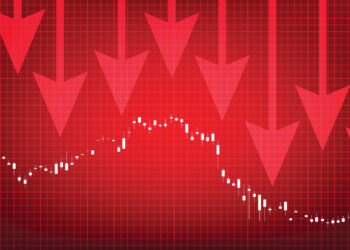As of the end of the third quarter of 2020, the Nigerian Stock Market was down 0.04% YTD. It had been the 8th consecutive month of negative YTD returns for one of Africa’s largest stock markets. But for the savvy investors who had grown accustomed to parsing through stock market data, there was something else happening.
While stocks posted negative returns based on YTD metrics, by September, Nigerian stocks were on the third consecutive month of a bullish run. The bullish run will remain until the end of the year catapulting Nigeria’s stock market to one of the best in the world with a return of 50%, its best since 2007.
Behind this run were tens of billions of naira of new cash funnelled into the market by local institutional investors like Pension Funds and Mutual Funds. They had suddenly realized the stock market was highly undervalued and more importantly, could offer dividend yield in double digits or at least higher than the prevailing fixed income yields which had crashed following a CBN policy that barred them from investing in OMO bills.
For the first time in decades, a stock market rally was being led by local portfolio investors and not the foreign portfolio investors who typically led the way with hot money inflows when the going was good and exited when it turned bad. This time around, the locals needed no nudging. The lure of dividend yields and value stocks had paved the way for the bandwagon effect that would see billions of naira pouring into the stock market.
For example, as of June 2020, Pension Funds in Nigeria had a total of N524.7 billion invested in the stock market representing 4.73% of Gross Asset Value. By September, the end of the third quarter, it was just N585.7 billion, increasing by about N60 billion. But by the end of the year, total Pension Fund investment in the stock market had catapulted to N858.4 billion, 6.9% of gross asset value. It was three months of blitz that witnessed an unprecedented rally that will end in stocks posting a return of 50% by end of the year, led by month to date returns of 13.8%, 14.7% and 15% for October, November, and December respectively.
If there is one thing we learnt last year, it is that a positive performance for the Nigerian stock market does not need to rely on foreign portfolio investor participation to have a thriving market. Unfortunately, this has been the case and by a distance, the main reason for an underperforming stock market.
Pension Funds will rather channel most of their funds into risk-free investments like FGN Bonds, Treasury Bills and other FGN Securities which makes up a combined 67% gross asset value. Most of the funds end up in government coffers and are used to fund recurrent expenditure and some of the capital projects slated in the budget. This starves the Nigerian economy of capital market activities in the stock market which is a key source of Capital Formation in any economy.
Litany of excuses despite the data
Pension Fund Administrators often absolve themselves of any blame. A few we have spoken to point to the Pension Reform Act as a disincentive to invest. By statute, they are only allowed to invest a maximum of 7% in any stock. In addition, there are strict criteria for a stock to be selected as investable by any pension fund. Currently, only about 40 of them qualify.
Another reason cited is the lack of depth in the stock market. For example, between the Stocks Worth Over One Trillion (SWOOTs include Dangote Cement, MTN, Airtel, BUA Cement and Nestle) is a market capitalization of about N14.3 trillion or 71.5% of the total market capitalization of the Nigerian Stock Exchange. Most already have a stake in these stocks and easily hit the peak of the investment cap for whatever is left of the 28.5% that are worthy of being bought.
They also cite stringent regulatory policies which limit how much risk pension funds can take when investing. Only recently did the regulator, Pencom, approve pension funds asset managers to manage a more aggressive Fund I that allows younger risk-hungry investors to choose funds that offer as much as 75% in slightly riskier variable investments such as stocks, mutual funds etc. Even at that, contributors will have to write to opt-in for such investments.
In the 4th quarter of 2020, Nigerian Pension Funds earned N119.68 billion in net realized gains on the sale of equities and bonds compared to the realized gains of N39.94 billion recorded in the prior quarter. According to Pencom, “this was mainly attributed to profit-taking activities resulting from market appreciation in the prices of units held in these asset classes, during the period under review,” again highlighting the surge of investments in equities by Pension Funds in the last three months of the year. Total unrealized gains were even more at over N169 billion.
The report also reveals RSA Fund I and II returned 41% and 32% at the end of Q4 driven by the performance of equities in the 4th quarter of 2020. Yes, Pension Funds fizzled out the momentum in 2021 as investments in equities lessened in reaction to economic considerations and a signal by the CBN that interest rates will rise. Again, choosing the easy way out with FGN Bonds and leaving equities in the cold.
Role of Pension Funds in capital formation
Despite the validity of their excuses, pension funds shoulder a portion of the blame when it comes to stock market performance. For example, there is no reason why FUGAZ stocks should be trading at a market capitalization below 10x their future earnings per share. Apart from the SWOOTs, most of the stocks in the NSE 30 trade well below 10x price to earnings ratio while having somewhat strong fundamentals.
Pension Funds also have enormous powers to influence the activities of market participants in a positive way. In most advanced economies, pension funds lead the way when it comes to investing in the stock market. According to a recent OECD report, Pension funds were mostly invested in equities and bonds at the end of 2019.
“Pension funds held more than 75% of their portfolios in equities and bonds in 16 out of 36 reporting OECD countries and in 17 out of 28 other reporting jurisdictions,” the report stated.
Compare that to Nigeria at just 7%.
A Wall Street Journal report revealed that “the median public pension fund managing at least $1 billion had 46.6% of its portfolio in equities, as of June 30, with just a 21.3% allocation to U.S. equities,” quoting data from Investment Metrics in Sep 2020.
Apart from providing liquidity in the process of capital formation, Pension funds also play a major role in nation-building and collective savings and investments. Nigerian regulators need to shrug off its rigid policies and allow pension funds to breathe and exhale.











.gif)






